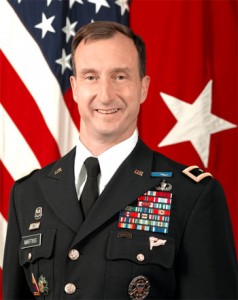Pakistan’s National Assembly, Senate Pass Bills Establishing Military Courts
On Sunday, Dawn’s editors knew that Pakistan’s lawmakers would enact the bills needed to establish military courts and published a stern condemnation of the move in an editorial with the telling title “A Sad Day”:
In the end, our political leadership proved unable to defend the constitutional and democratic roots of the system or resist the generals’ demands.
Pakistan is to have military courts once again. To establish them the politicians have agreed to distort the principle of separation of powers, smash the edifice of rights upon which the Constitution is built and essentially give up on fixing decrepit state institutions.
The editors pointed out how the efforts to establish the military courts could have been put to better use:
Had the same time and effort spent on winning consensus for military courts gone into urgent reforms and administrative steps to fix the criminal justice structure, the existing system could have been brought into some semblance of shape to deal with terrorism.
Sadly, the political leadership has abdicated its democratic responsibilities. Surrender perhaps comes easily.
For a country that has been beset by repeated military coups, the Dawn editors rightly note the risk in granting more powers to the military.
The votes on the bills were unanimous among those present and voting today, but Imran Khan’s PTI party and religious parties abstained:
The National Assembly and Senate on Tuesday passed the 21st Constitutional Amendment Bill 2015 and Pakistan Army Act 1952 (Amendment) Bill 2015.
The Constitutional Amendment Bill was passed with 247 votes – 14 more than the required two-third majority in the NA, and 78 votes out of 104 were passed in the Senate.
The amendment – aimed to set up special courts to try militants – was not opposed by any member present inside the house. Lawmakers from Pakistan Tehreek-e-Insaf, Jamaat-e-Islami, Jamiat Ulema-e-Islam-Fazl and Sheikh Rasheed abstained from voting – in both the NA and the Senate.
Each clause of the bill was voted for separately. The bill is now expected to be signed into law by the president this week.
This move by Pakistan, coming in the wake of the devastating Taliban attack on a military school in Peshawar, is drawing obvious comparisons to US moves to establish military commissions at Guantanamo for trying terrorism suspects. Sadly, Pakistan has been just as reckless in making the move as the US was. Had they taken the time for a review of the outcome of US military commissions, they would have found (pdf) that while about 500 suspects in terrorism trials have been convicted in US federal criminal courts, the vaunted military commissions have yielded only 8 convictions since 9/11. On the occasion of the conviction in federal court last year of Osama bin Laden’s son in law, Lyle Denniston had this to say:
As long ago as 1866, just after the Civil War, the Constitution stood for the principle that, if the civilian courts were open and functioning during wartime, trials of civilians charged with crimes of war should be tried in those courts, not in military tribunals. That was the Supreme Court’s decision in the case of Ex parte Milligan.
The Court’s lead opinion back then said: “No doctrine, involving more pernicious consequences, was ever invented by the wit of man than that any of its provisions can be suspended during any of the great exigencies of government. Such a doctrine leads directly to anarchy or despotism, but the theory of necessity on which it is based is false.”
[We can separately note that Denniston’s quote from Ex parte Milligan seems to apply just as well to the excuses brought forth in favor of torture as they do for the establishment of military commissions.]
Perhaps the only good aspect of Pakistan’s move to establish military courts is that the bills carry a two year sunset provision. Sadly, though, given the current cowardly status of Pakistan’s lawmakers, it would not be surprising for regular two year “extensions” of the laws to continue in perpetuity. Just like our endless extensions of unconstitutional wiretapping under FISA.



